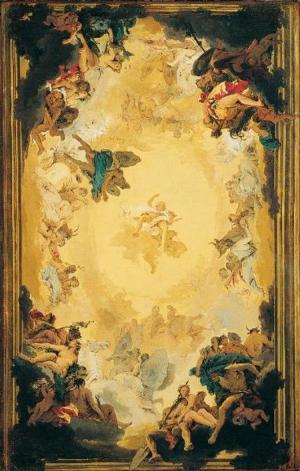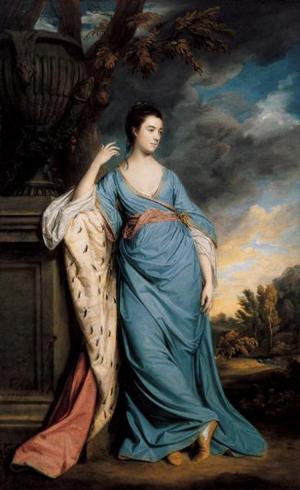| Author: | James Fenimore Cooper | ISBN: | 9781465522566 |
| Publisher: | Library of Alexandria | Publication: | March 8, 2015 |
| Imprint: | Language: | English |
| Author: | James Fenimore Cooper |
| ISBN: | 9781465522566 |
| Publisher: | Library of Alexandria |
| Publication: | March 8, 2015 |
| Imprint: | |
| Language: | English |
Cooper wrote Andrew Thompson Goodrich, his first publisher, on 31 May 1820, that Precaution had been preceded by an experimental effort to write a short moral tale. Mrs. Opie's Simple Tales (1807) and Tales of Real Life (1813) would have been among the obvious models. Finding the tale "swell to a rather unwieldy size," Cooper explained, "I destroy'd the manuscript and changed it to a novel." Precaution, which was completed on 12 June 1820, was probably written within a month; and before the novel had begun its tortuous way through the press, Cooper commenced the writing of The Spy. By 28 June he had completed "about sixty pages," presumably manuscript pages; and as the writing proceeded and his enthusiasm for the new work mounted, his expectations for the success of Precaution diminished. He wrote Goodrich on 12 July: "The 'Spy' goes on slowly and will not be finish'd until late in the fall—I take more pains with it—as it is to be an American novel professedly." In fact, The Spy was completed only a short time before its publication in New York on 22 December 1821. As Cooper's hopes for The Spy faded, his confidence in the viability of the type of imitative writing he had attempted in Precaution appears to have revived. Precaution was reviewed in a most laudatory manner in the Repository for January 1821, and the comment accompanying the notice of publication in the Repository was: "We only regret that the scene of this novel was not laid in America." Whether Cooper persuaded himself or allowed himself to be persuaded by Wiley, Gardner, and Other friends, he seems to have decided that his mistake in Precaution was not so much the choice of models as the choice of setting. Why not employ an American setting and continue his imitation of the British women? During 1820 Wiley, Goodrich, and William B. Gilley had jointly published a collection of Mrs. Opie's stories called Tales of the Heart; apparently they found it profitable. Accordingly, Cooper planned a series of stories which Wiley noticed as in press in the Repository for May 1822 and which he described as "American Tales, by a Lady, viz. Imagination—Heart—Matter—Manner—Matter and Manner. 2 vols. 18 mo. Wiley and Halsted, New York." A briefer announcement had appeared earlier, in the October 1821 issue of the Repository, although The Spy, which was certainly in press, was not noticed. In his letter of 7 January 1822 congratulating Cooper on the great success of The Spy, Wiley observed: "You speak of being engaged about 'the Pioneer.'—Have you forgotten 'the American Tales,' which were commenced by a certain lady a long time ago?" Be it remembered, That on the thirteenth day of June, in the forty-seventh year of the Independence of the United States of America, Charles Wiley, of the said District, hath deposited in this office the title of a Book, the right whereof he claims as proprietor, in the words and figures following, to wit: In conformity to the Act of Congress of the United States entitled, "An Act for the encouragement of Learning, by securing the copies of Maps, Charts, and Books, to the authors and proprietors of such copies, during the times therein mentioned." And also to an Act, entitled "an Act, supplementary to an Act, entitled an Act for the encouragement of Learning, by securing the copies of Maps, Charts, and Books, to the authors and proprietors of such copies, during the times therein mentioned, and extending the benefits thereof to the arts of designing, engraving, and etching historical and Other prints
Cooper wrote Andrew Thompson Goodrich, his first publisher, on 31 May 1820, that Precaution had been preceded by an experimental effort to write a short moral tale. Mrs. Opie's Simple Tales (1807) and Tales of Real Life (1813) would have been among the obvious models. Finding the tale "swell to a rather unwieldy size," Cooper explained, "I destroy'd the manuscript and changed it to a novel." Precaution, which was completed on 12 June 1820, was probably written within a month; and before the novel had begun its tortuous way through the press, Cooper commenced the writing of The Spy. By 28 June he had completed "about sixty pages," presumably manuscript pages; and as the writing proceeded and his enthusiasm for the new work mounted, his expectations for the success of Precaution diminished. He wrote Goodrich on 12 July: "The 'Spy' goes on slowly and will not be finish'd until late in the fall—I take more pains with it—as it is to be an American novel professedly." In fact, The Spy was completed only a short time before its publication in New York on 22 December 1821. As Cooper's hopes for The Spy faded, his confidence in the viability of the type of imitative writing he had attempted in Precaution appears to have revived. Precaution was reviewed in a most laudatory manner in the Repository for January 1821, and the comment accompanying the notice of publication in the Repository was: "We only regret that the scene of this novel was not laid in America." Whether Cooper persuaded himself or allowed himself to be persuaded by Wiley, Gardner, and Other friends, he seems to have decided that his mistake in Precaution was not so much the choice of models as the choice of setting. Why not employ an American setting and continue his imitation of the British women? During 1820 Wiley, Goodrich, and William B. Gilley had jointly published a collection of Mrs. Opie's stories called Tales of the Heart; apparently they found it profitable. Accordingly, Cooper planned a series of stories which Wiley noticed as in press in the Repository for May 1822 and which he described as "American Tales, by a Lady, viz. Imagination—Heart—Matter—Manner—Matter and Manner. 2 vols. 18 mo. Wiley and Halsted, New York." A briefer announcement had appeared earlier, in the October 1821 issue of the Repository, although The Spy, which was certainly in press, was not noticed. In his letter of 7 January 1822 congratulating Cooper on the great success of The Spy, Wiley observed: "You speak of being engaged about 'the Pioneer.'—Have you forgotten 'the American Tales,' which were commenced by a certain lady a long time ago?" Be it remembered, That on the thirteenth day of June, in the forty-seventh year of the Independence of the United States of America, Charles Wiley, of the said District, hath deposited in this office the title of a Book, the right whereof he claims as proprietor, in the words and figures following, to wit: In conformity to the Act of Congress of the United States entitled, "An Act for the encouragement of Learning, by securing the copies of Maps, Charts, and Books, to the authors and proprietors of such copies, during the times therein mentioned." And also to an Act, entitled "an Act, supplementary to an Act, entitled an Act for the encouragement of Learning, by securing the copies of Maps, Charts, and Books, to the authors and proprietors of such copies, during the times therein mentioned, and extending the benefits thereof to the arts of designing, engraving, and etching historical and Other prints















